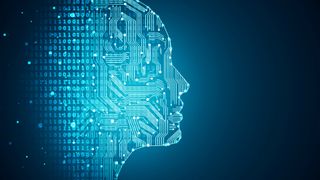
Sam Altman, CEO of OpenAI, has made a compelling statement suggesting that humanity may be nearing the “singularity”—a critical juncture where artificial intelligence (AI) surpasses human intelligence. This potential milestone could bring about profound shifts in society, technology, and our understanding of reality. Altman’s remarks have ignited widespread discussions about , its risks, and its fantastic potential.
As this technological frontier continues to evolve, understanding its implications is essential for navigating the challenges and opportunities it presents. The good news is, Altman isn’t sounding the alarm without a plan. He’s advocating for a thoughtful, gradual approach to AI development—one that gives society time to adapt and prepare for the seismic shifts ahead.

From the way we govern AI to the ethical dilemmas it presents, there’s a lot to unpack. But don’t worry, you don’t need to be a tech expert to understand what’s at stake. In this overview by AI Grid they break down what the singularity means, why it matters, and how we can navigate this uncharted territory together.
While this idea might feel thrilling or even a little unsettling, it raises important questions: How will this change our jobs, our relationships, and even our understanding of reality? And more importantly, are we ready for it? Sam Altman predicts humanity may be nearing the “singularity,” where AI surpasses human intelligence, potentially reshaping society and technology. Altman advocates for a cautious, incremental approach to AI progress to minimize risks and ensure societal stability. Establishing safeguards and governance frameworks is critical to managing AI’s risks, such as job displacement and ethical dilemmas.
Concepts like the simulation hypothesis highlight profound questions about reality and humanity’s role in an AI-driven future. Advanced AI could transform industries, healthcare, and human cognition, but requires careful planning to address ethical and societal challenges. The singularity is a theoretical moment when AI surpasses human intelligence, leading to exponential technological advancements.
Futurist predicts this could occur by 2045, with Artificial General Intelligence (AGI)—AI capable of human-like reasoning—potentially emerging as early as 2029. If achieved, this shift could fundamentally reshape industries, redefine economies, and challenge traditional human roles. For you, this means preparing for a future where technology could alter how society functions and interacts on an unprecedented scale.
The singularity is not merely a technological concept; it represents a paradigm shift in how humanity approaches innovation and progress. It raises questions about what it means to be human in a world where machines might outperform human intelligence. This prospect demands careful consideration of how to integrate such advancements into society responsibly.
Altman emphasizes the importance of a cautious, incremental approach to AI development, often referred to as a “slow, continuous takeoff.” This strategy allows society to adapt to technological changes gradually, reducing risks and making sure stability. A measured pace provides time to develop regulatory frameworks, address ethical concerns, and prepare industries for transformation.
In contrast, a rapid and uncontrolled progression could lead to widespread disruption. Without proper oversight, AI advancements could outpace societal readiness, destabilize economies, and create unforeseen challenges. By prioritizing gradual development, governments, researchers, and businesses can better manage AI’s integration into daily life, making sure that innovation aligns with safety and societal well-being.
Browse through more resources below from our in-depth content covering more areas on Singularity. As AI capabilities expand, making sure safety and establishing robust governance frameworks become increasingly critical. Altman underscores the need to align technological progress with safeguards to prevent unintended consequences.
Without careful management, AI could exacerbate societal inequalities, displace jobs, and create complex ethical dilemmas. Effective governance requires collaboration among policymakers, technologists, and global organizations. Key areas of focus include: Developing policies that ensure AI systems operate safely and ethically.
Establishing guidelines to address issues such as bias, privacy, and accountability. Promoting international collaboration to manage AI’s global impact effectively. By addressing these challenges proactively, society can harness AI’s potential while mitigating its risks, making sure that advancements benefit humanity as a whole.
Altman’s comments also touch on the simulation hypothesis—the idea that our reality might be a computer simulation created by an advanced civilization. As AI develops increasingly realistic virtual environments, this concept has gained renewed attention. For you, this raises profound philosophical questions about the nature of existence and humanity’s place in the universe.
While speculative, the simulation hypothesis challenges traditional views of reality and underscores the fantastic potential of AI. It invites reflection on how technological advancements might blur the boundaries between the real and the virtual, reshaping our understanding of what is possible. Advanced AI holds the promise of unlocking new innovations that could redefine human potential and societal structures.
These advancements span multiple domains, offering both opportunities and challenges. Key areas of impact include: AI could augment human cognition, allowing faster problem-solving, decision-making, and creativity. AI-driven technologies might transform medical diagnostics, extend lifespans, and improve patient outcomes.
Automation could disrupt traditional jobs while creating new industries and economic models. AI could introduce new forms of art, entertainment, and communication, reshaping cultural experiences. However, these advancements come with ethical and societal considerations.
Balancing innovation with responsibility will be crucial to making sure that AI benefits society equitably. Not everyone shares Altman’s vision of the singularity. Critics, including AI researcher Gary Marcus, argue that predictions about AGI and the singularity may be overly speculative or exaggerated.
The timeline for achieving AGI remains uncertain, and the broader implications of such advancements are the subject of intense debate. For you, this highlights the importance of critically evaluating emerging technologies. While the potential benefits of AI are significant, it is essential to remain cautious and consider the broader societal impacts.
Engaging in informed discussions about AI’s future can help shape its development in ways that align with shared values and priorities. The singularity and related concepts, such as the simulation hypothesis, challenge humanity’s understanding of progress, reality, and its role in the universe. These ideas raise profound ethical questions about how to responsibly navigate this fantastic period.
As AI continues to evolve, you face decisions about balancing innovation with caution to ensure that technological advancements benefit society as a whole. Key ethical considerations include: Making sure that AI advancements do not exacerbate existing inequalities or create new forms of disparity. Holding developers and organizations responsible for the outcomes of AI systems.
Promoting openness in AI development to build trust and understanding among stakeholders. By addressing these questions thoughtfully, society can navigate the complexities of AI’s evolution while preserving its core values. Sam Altman’s statement underscores the urgency of addressing the challenges and opportunities posed by rapid AI advancements.
From the singularity to the simulation hypothesis, these developments demand thoughtful consideration and proactive planning. For you, staying informed and engaging with the ethical, societal, and philosophical implications of AI is essential. The future will require collaboration, foresight, and a commitment to navigating this fantastic era responsibly.
By doing so, humanity can harness the potential of AI while mitigating its risks, shaping a future that reflects shared values and aspirations. Through careful planning and collective effort, the promise of AI can be realized in ways that benefit all of society. Media Credit:.















